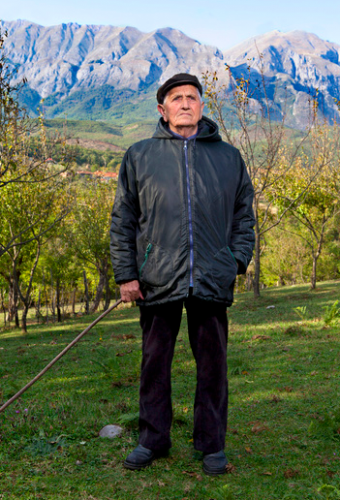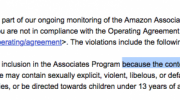There is a post over at Petapixel that I think will be a must-see for most readers of this blog, and I think many of you regulars will understand the resonance it has along the gender-inclusive spectrum of our tastes here – and among friends/community of this blog. The post’s title is Portraits of Albanian Women Who Have Lived Their Lives As Men. The post takes a quick look at the photo work of Jill Peters who visited mountain villages of northern Albania to capture portraits of “burneshas,” or people born with female bodies who have lived their lives as men. I know that the gender identity in this context is presented as culturally being a “sworn virgin” – yet we might be inclined to wonder what realities manifest with any Venn Diagrams regarding trans identity, possible asexuality, and other factors that don’t fit neatly into the assigned gender boxes inherent in the presentation of these guys simply being ‘women living as men’. Anyway, that’s why I called this post Portraits of Albanian transgender elders, rather than presenting this under the wrong-feeling pastiche under the societally-imposed titles of ‘women playing dudes’.
From Jill Peters:
As an alternative, becoming a Sworn Virgin, or ‘burnesha” elevated a woman to the status of a man and granted her all the rights and privileges of the male population. In order to manifest the transition such a woman cut her hair, donned male clothing and sometimes even changed her name. Male gestures and swaggers were practiced until they became second nature. Most importantly of all, she took a vow of celibacy to remain chaste for life. She became a “he”.
This practice continues today but as modernization inches toward the small villages nestled in the Alps , this archaic tradition is increasingly seen as obsolete. Only a few aging Sworn Virgins remain. The number of new cases are scant and tend to be considered less authentic by younger generations.






I worked in Albania for several years, including a bit in that part of the north where the few Burnesha lived. Interestingly enough, burnesh is a feminized version of the word burre, which means man (or husband). In the part of central Albania where I lived, where you would not find burnesha, the term nonetheless is sometimes used as a compliment meaning “strong woman.”
Very interesting post. It’s why stories set in the past often better explore themes that remain issues in the present. This could go various directions but obviously in the past there was more of a reason for a woman to abandon her gender just to seek equality of treatment…but of course how much else was sacrificed in that choice? The issue of equality among genders (and other arbitrary labels) remains today, yet can be more powerfully explored when the times were even harsher.
I had heard of this along time ago and have though about the subject of forced transgender dis-morphia. It is quite betraying to men with low self-esteem to realize that there is nothing special or significant about being born male. That it is just a perceived value of self worth and has nothing to do with who or what you are as a person.